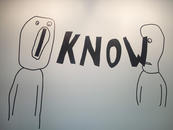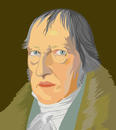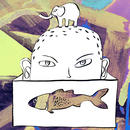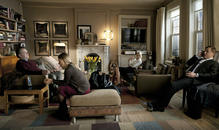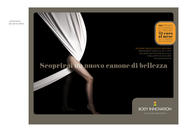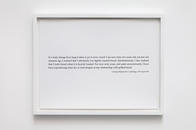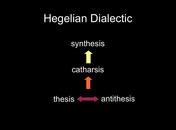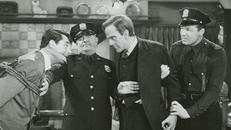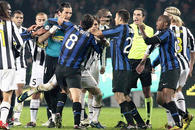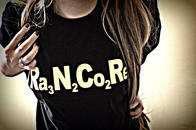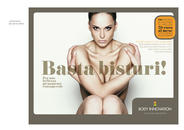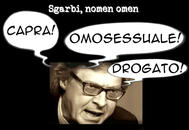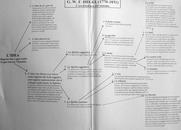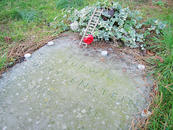In the portfolio section of our website, you will find a presentation of the corporate image and ad campaign that we recently designed for Body Innovation, a startup franchise operating in field of beauty and medical centers.
Arsenic and Old Lace
"The older I get, the more I realize how difficult it is for people to understand one other; I think that what misleads us is the fact that we all seem so similar to one another. If some some of us looked like elephant sand others like a cat, or a fish, we would not expect to understand each other and things would look much more similar to what they are in reality."
This is a sharp reflection made by Ludwig Wittgenstein, taken from a letter sent to Neapolitan economist Piero Sraffa, with whom he has a lasting and fruitful professional relationship, but increasingly undermined by conflicts generated by a strong intellectual dissent and a lack of real understanding. A relationship, that proved to be fertile thanks to the sincere effort and (dialectic) intelligence of the two parties.
Much, far too much, of humanity isn’t able to handle a difference of opinion of others and the conflict that ensues. These people do not know what they are missing. The problem is that we often take disagreement with our ideas or beliefs personally, seeing it as a sort of personal affront, which is sometimes transformed into a rage that blocks the brain and, in the worst cases, turns into bitterness and finally prevention - against those who dared to contradict us. Dissent is something that digs deep, reaching to take hold of our own person, even when perhaps the disagreement concerns only a certain fraction of our thought or a part of our idea. But when that dissent is, for example, a notation that inserted itslef properly and cunning into our speech our ideas, we are not able to move forward in a decisive manner, and deny it in no way! An intelligent dissent can in fact be the spark that shines and makes sense of what we had already been considered sufficient and instead just lacked a detonator. A remedy, a tonic in fact, mistaken for arsenic, in pursuance of an ego kept at bay.
So why all this trouble accepting an open dispute, a conflict, losing so many opportunities for growth? What are the real causes of “personalizing ad absurdum?” I believe that everything arises from a hidden fear: insecurity that is often translated into the opposite attitute, that of arrogance and complacency. If we are fairly confident in who we are and do not feel ashamed, if we have anchored ourselves to fundamental certainties, we can peacefully accept external challenges, especially dissent, because rationally we are convinced that difference of opionon is the only way to grow professionally, or personally. But how much of what is really intelligent comes from an external source? How to recognize it, how to accept it with relative certainty as to increase our potential rather than resizing it? Here is the second part of the problem. And here I think that experience comes into play.
I speak of my experience just because the only one I truly know, in an attempt to best explain the problem. By producing ideas, which I hope and believe are original, I am by default must manage disagreements of others: from people who I involve in tests prior to the submission of jobs to customers, the customers themselves (I leave aside here the final public, the protagonist of analyzes different). Often these disagreements are small, which do not affect in any way the conceptual and aesthetic ideas behind them. These disagreements have always been easy to handle with confidence, obviously. Sometimes, however, the disagreements take the form of more radical interventions. And with this, the problems begin. When I was young, negative criticism would bend me out of shape. I was without the ability to discern dissent that was useful from that which was clearly out of place. I made compromises that undermined the roots of the quality of the work, dulling its style and diluting its meaning. Criticism has always effected me, but for a certain period of his career, I could not accept it nor evaluate it properly.
By now, I believe I have gained a glimmer of critical thinking that makes me gladly welcome intelligent, reasonable, careful, competent comments. This is because I no longer long for universal consent but “only” to be able to create work I am proud of as a co-author (in my line of work, we work as a team work, even when, for better or worse, the art director comes up with the ideas). In this sense, I recently happened to welcome excellent notes from illuminated customers (yes, they exist), generated by partial dissent around portions of my creative ideas. I receive great satisfaction from watching a project grow beyond our own perspective, through adequate interventions that improve its appearance and meaning.
On the other hand, unlike in the past, I can recognize the trivial or vexatious criticism with a certain ease and speed. Unfortunately, these disagreements are the restult of ignorance or, worse, prevention. And unlike in the past, I do not try to put myself in the shoes of the the person making the critism and, therefore, to disperse and contaminate the quality of a job making it insufficient or even ridiculous to force corrections and corruption. I fight strenuously with dialectical weapons to force reason upon others, then unleashing logical reasons to defend the best possible solution. But it's really weird that for many people the logic, and dialectical debate, are seen as offensive weapons, as subversive tools aimed against the dignity of those who can not grasp as such.
I believe that much of this failure derives precisely from insufficient dialectical education, the art itself of smart growth through reason, the natural way of looking at problems: starting formulating the easiest hypothesis (theory), which must be exceeded, going beyond clichés to arrive at the antithesis to the rational justification of elements that at first seemed contradictory, for the preparation of a synthesis that ultimately leaves no stone unturned. The reason that urges the facts, in fact. It is a dynamic way that presupposes a certain humility and the courage to put on the grill also our ideas and beliefs, on a par with those of others. Humility and courage that permit one enter into conflict, sympathetically or unsympathetically, with honesty and fairness for a common good (or, in my case, for the best graphic design possible).
To me, it doesn’t seem possible to work at a certain level without ever generating dissent. The absence of conflict within professional staff demonstrates a lack of character or interest in the outcome, or else an interest only in money. All these assumptions are not harbingers of gratifying results in terms of quality. And this last statement seems peremptory formulated in order not to accept any dissent.
11/10/2012 Filippo Maglione

